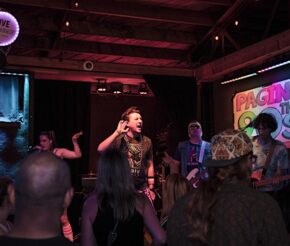- Advertise
-
Subscribe
How Police Presence Causes Panic Overdose

According to a recent study, police presence at music festivals has been linked to the phenomenon of panic overdose.
The study, which was conducted by researchers at St Vincent’s Clinical School, surveyed 1,229 partygoers at six major music festivals. Participants were asked about their drug use at the festivals, their higher-risk drug ingesting behaviours, and whether police presence had any influence on their drug-using decisions.

Out of the 372 participants who intended to use or had already used drugs on the day of the festival, 77% chose to do MDMA. However, half of those using MDMA reported double-dropping.
Double dropping refers to a person taking double the same drug. The term is usually used in relation to MDMA.
One of the significant findings the study noted was the correlation between preloading drugs and a fear of police presence.
Why the law enforcement can do more harm than good
Preloading refers to taking a copious amount of a specific substance in a single go – which, naturally, could lead to overdose.
The behavior is considered a response to the fear of being caught by law enforcement.
What researchers concluded was that drug use could be amplified by police presence at festivals. This translates into officers patrolling the venue, drug-sniffing dogs, and searches at the venue’s queues.
While police presence is thought as an incentive to discourage people from using drugs at festivals, it seems to have a reversed effect.
Police patrolling seems to push users towards double dropping or preloading before entering the site, rather than stopping their drug use.

Researchers say more consideration is needed
But it shouldn’t be surprising that police involvement in drug-related incidents can cause dangerous reactions caused by panic and fear.
A 2019 study examined the effects of police involvement in North America’s overdose crisis. Results showed that fear of law enforcement practices and repercussions drove users to avoid reaching out to emergency services. St Vincent’s Clinical School researchers suggest that police should exhibit a different approach when it comes to policing drug use, calling for more education to prevent dangerous behaviour.
None of the festivals provided drug-testing facilities, which the researchers insisted was an essential part of promoting safe and recreational drug use.





